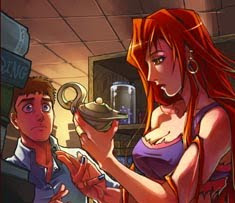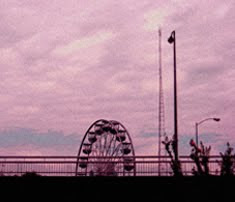
Let me get this confession out of the way up front: I'm a fiction writer who mostly reads non-fiction. Yes, yes, I know.
Let's be clear on another thing: This isn't so much a review of the book itself as a collection of insights I had while reading it. Writers and actors have more in common than I would've thought. How? Read on.
When I came across a review of
Theater Geek by Mickey Rapkin, I knew I had to get it right away. I had never heard of Stagedoor Manor, but I was intrigued (and jealous) that there was a special theater camp for kids - one so highly regarded that agents regularly drop by, and yet the camp remains so egalitarian that there are no auditions to get in. In 208 pages (hardback), Rapkin follows three of the campers through the ups and downs of their final summer at Stagedoor, and he gives a fascinating look at the thirty-five year history of the camp, from its wild and woolly early years in the 1970s, to its more disciplined but no less energetic incarnation of today.
The book's initial appeal to me was two-fold. I was in a summer production of
Alice in Wonderland when I was nine and I continued with theater in middle school, ending my involvement reluctantly in high school when band and family commitments made it no longer feasible. I am fascinated by sub-cultures, the more insular the better. For these reasons, an inside peek at Stagedoor Manor was right up my alley.
Once I got to reading it, though, I was struck by how similar actors and writers are with regard to their characters. Like us, actors create their characters, and the kids at Stagedoor are often required to come up with backstory, just like writers do. They are reminded that every time a character comes on stage, he or she
wants something, and that want must be conveyed to the audience. (Sound familiar, writers?) And here's a quote that will resonate with writers, from Jeff Blumenkrantz, a former camper:
Here are the things you need to have considered before you get up and sing a song: Who are you singing to? What just happened? Why are you expressing this in this moment?
Yep, just like writing.
The best of these young actors learn to
become their characters, crying real tears when the character is in pain and feeling real joy when the character is happy. How many of us haven't cried at our keyboard over a tragic scene we're writing, or experienced an oxytocin rush when our character falls in love?
Good writing is a form of method acting. And that's why you should read this book.
~~~~~~~~~
Update for Alice Audrey: Here's where we performed Alice in Wonderland: Sunken Garden Theater. The tunnel mentioned in the fact sheet was the bane of our director's existence. We kids loved it and the Griffin was particularly adept at sneaking off and making trouble down there. We gave three performances. I don't remember there being any empty seats, and it's a big theater.





